Faces of the 2019 Transfiguration Meetings Festival
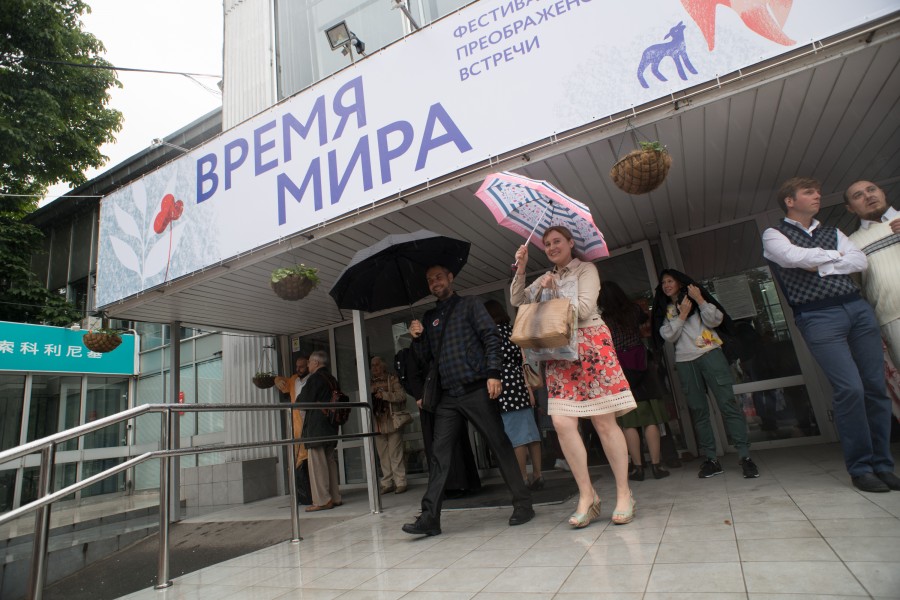
The 5th annual Transfiguration Meetings Festival, held in Moscow at Sokolniki on the 17th and 18th of August, was dedicated to the theme “A Time for Peace”. More than 30 festival events were all in some way related to the theme of reconciliation and overcoming enmity and discord.
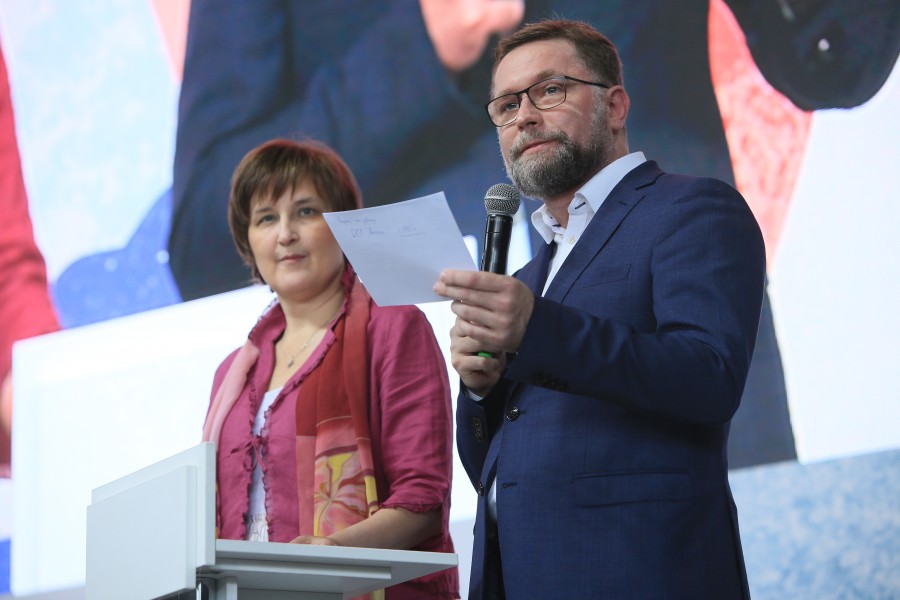
Dmitry Gasak,Chairman of the Transfiguration Brotherhood: “Striving for peace is never a passive act and is always an actively taken position. After all, the appearance of peace is also a power acting in history, though it isn’t a power of enmity and destruction, but a force for unity and creative emergence.”
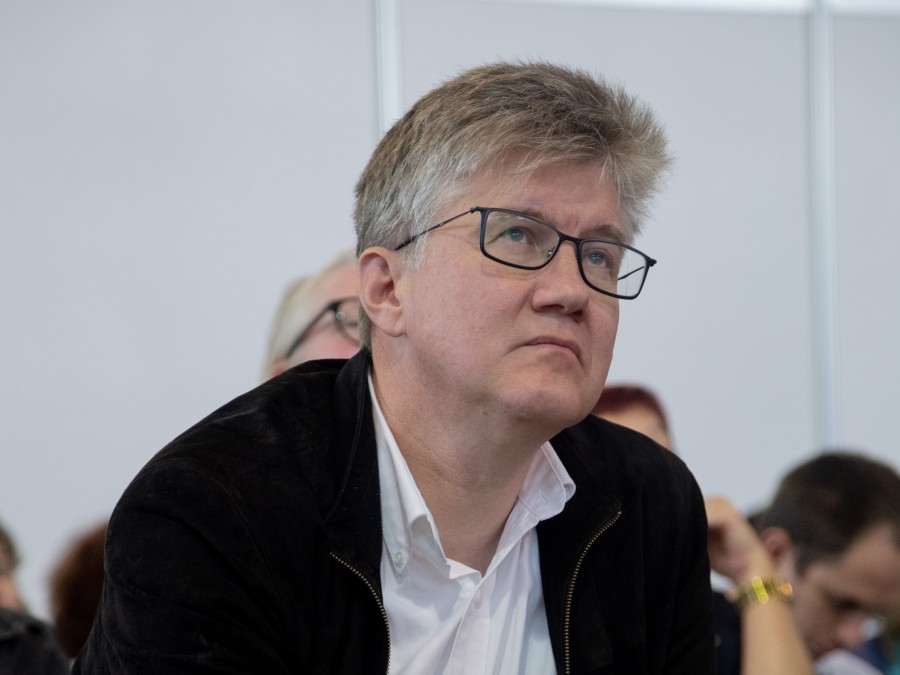
Ivan Kurilla, historian, and Professor at the European University in St. Petersburg: “We look on as history is mythologized, and propaganda takes the side of the “divide and conquer” principle. The main worry of our parents, “just don’t let there be another war” is slowing being replaced with the terrible phrase “we can do it again”. Communal memory of war, whether on the family or neighbourhood level, has the power to stand against this change, because communal memory is not addressed to the masses but to the specific person, and therefore provides us with an opportunity to combat the ideologization of our consciousness.”
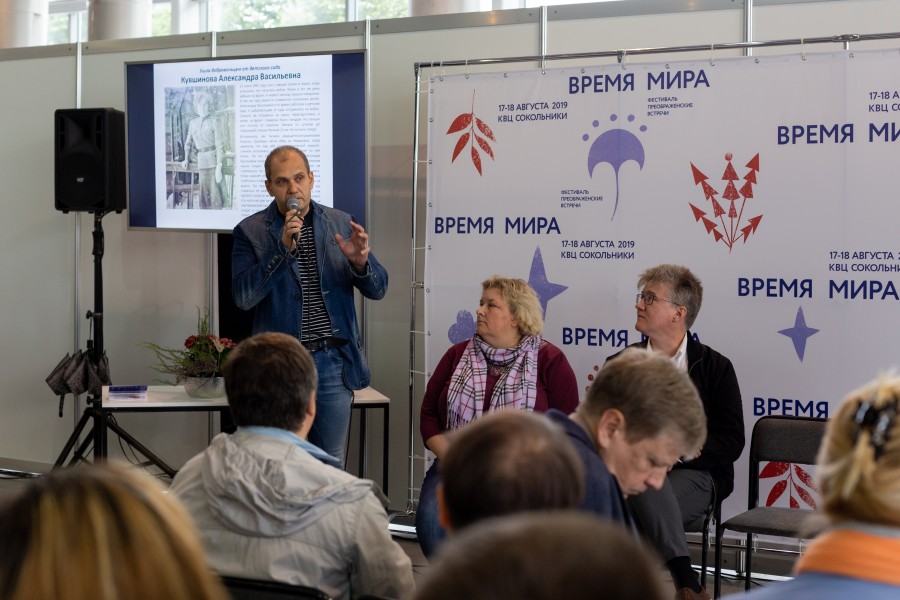
Sergei Lapenkov,one of the founders of the Immortal Regiment civil initiative: “Immortal Regiment’s main business isn’t to march with portraits of fallen soldiers on Victory Day (9 May, in Russia) – that is far too little. At present, we are keeping ourselves busy with the creation of a manuscript for our nation’s people – the recording of family histories in relation to the war. Because if we take away the private stories, only faceless slogans remain, and you can hide any ideology whatsoever behind posters carrying those slogans.”
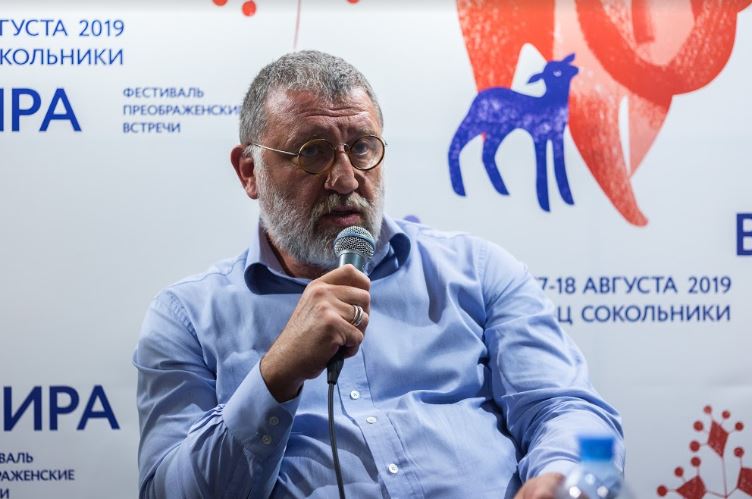
Sergei Parkhomenko, journalist and co-author of the Final Address project: “Many problems have been caused by the fact that Russia hasn’t come to terms with her own history. We haven’t worried over it, re-thought it, re-discussed it…and in some cases we haven’t grieved it where we should have. There are other countries which we sometimes look upon with envy, because they experience understanding between people, consensus, have a national idea, dignity, etc. In some cases these countries have very difficult histories and yet were able to make sense of them and stop being ashamed of them. This is work that we simply have to complete for ourselves…”
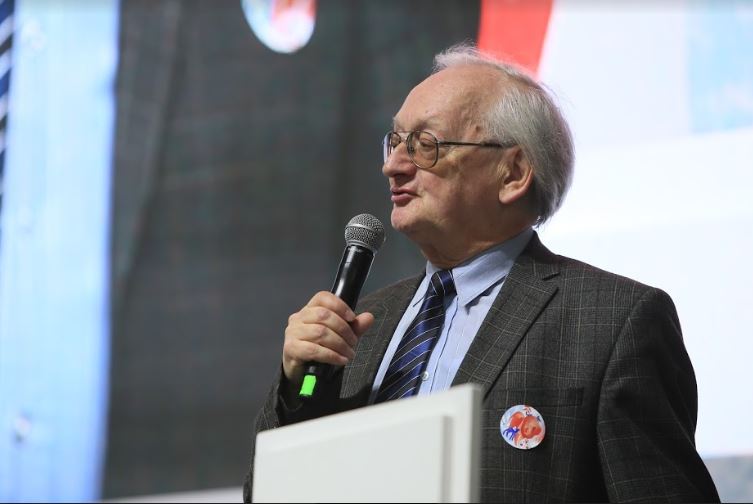
Alexey Starobinsky, scholar at the Russian Academy of the Sciences, Theoretical Physicist: “One of the meanings of the word “peace” is “agreement”. Coming from the academic world, I can tell you that for us “peace” is when people get together and argue their various opinions, but are nonetheless able to act in an agreed fashion. Even when we continue to live with our various differing positions, it is essential that we learn to achieve agreement in our common affairs. This is exceptionally important in our country and in the world at large.”
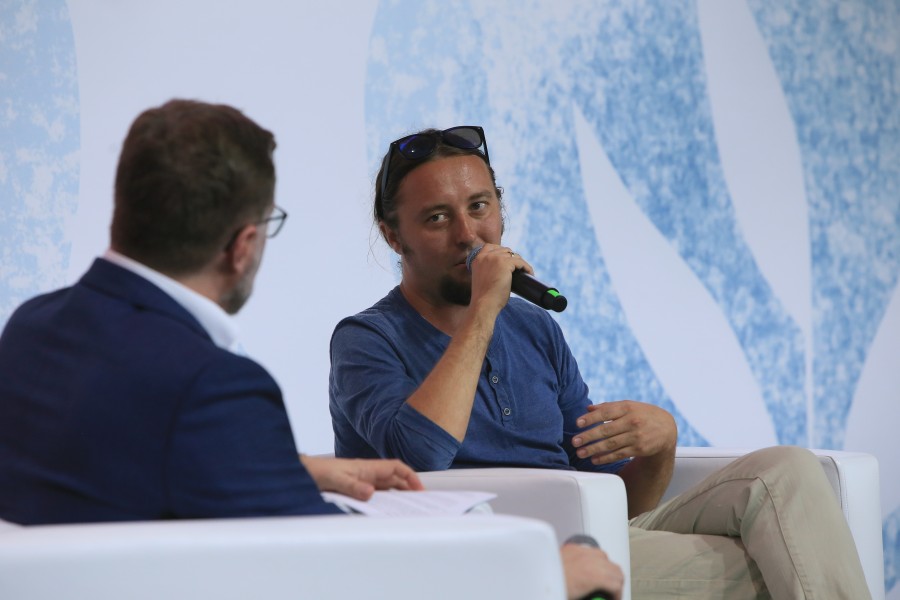
Andrey Kochetkov, Founder of the Tom Sawyer Fest historical restoration initiative: “Cities aren’t tiles, or houses or infrastructure. They are the people who made all these things and live amidst them. First and foremost, Tom Sawyer Fest is about dialogue between very different people: bureaucrats, volunteers, businessmen – without this dialogue we can’t build anything. For modern man, the world of words is becoming more and more important. A majority of verbal arguments are likely to issue in open battle or war. Ukrainian history has shown us how quickly man becomes subhuman in words, when people are no longer considered people.”
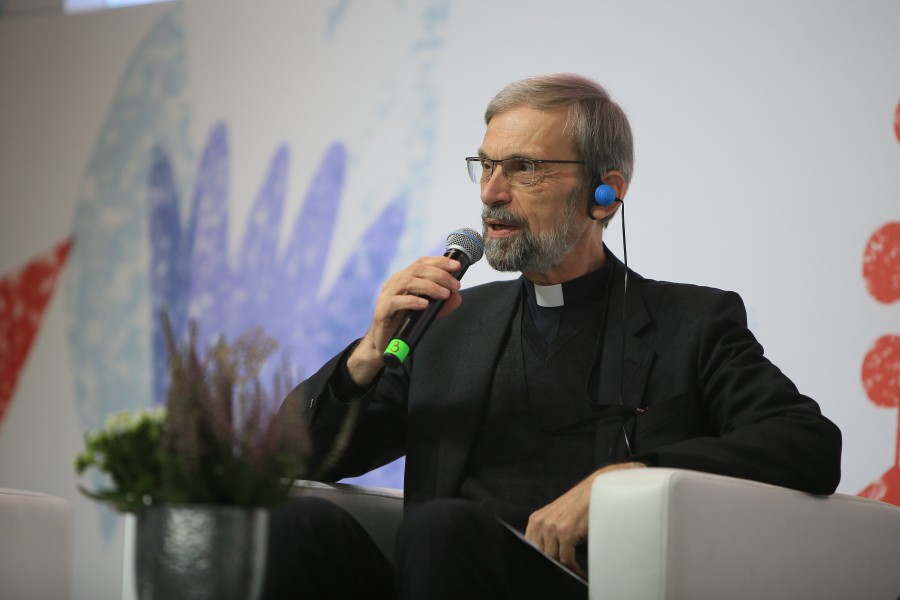
Fr. Manfred Deistler, Head of the Centre for Dialog and Prayer in Auchwitz: “I live in Auchwitz. The results of everything that happened in the 20th c. in this place are palpable to this day.From experience, we know that when you meet victims you ask forgiveness and try to build bridges. This is healing. I can’t speak about the healing of Russia, but the most important thing is that the Lord looks upon us with love at all times. He doesn’t close his eyes, but sees our pain and our guilt, and cries over them. When Christ rose from the dead, the wounds on his body remained, and he showed them to his disciples. I want this image of Christ’s open wounds to stay with us. We can’t change the past, but this image will help us to heal our present and our future.”
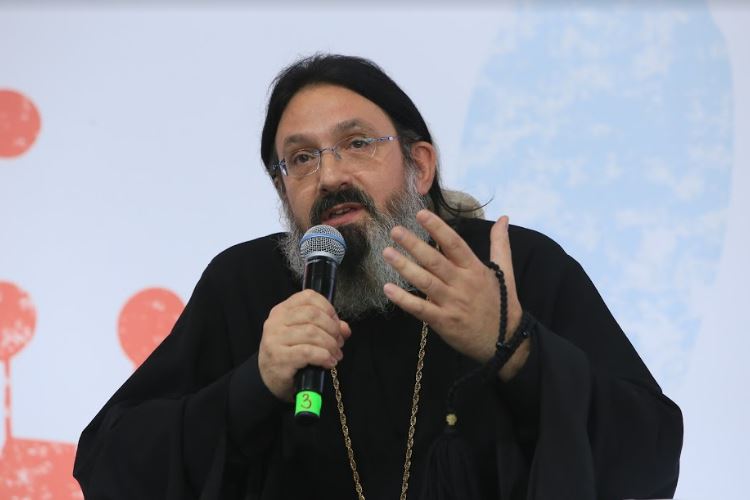
Priest-monk Giovanni Guaita, who serves at the Church of Cosmos and Damian in Shubino, Moscow, on the events that took place on the 27th of July, when he opened the doors of his church to demonstrators during an unsanctioned meeting, protecting them from arrest and reading prayers for peace with them: “On one of the days when meetings were held, three policemen from the special forces entered the church. We spoke, and it turned out that they were Orthodox Christians. Then I reminded them that for an Orthodox Christian, the use of violence is always a sin. A person under authority must, of course, obey his orders – but this obedience can be given in different ways. To use force against an unarmed person is a heavy sin, and I asked them not to do this. Christians are called to live in the thick of current events. They should begin each day by reading the Gospel, and after that read newspapers, listen to the radio, etc. It is incredibly important to pray and to be in the thick of events. We are called to bring peace to our society.”
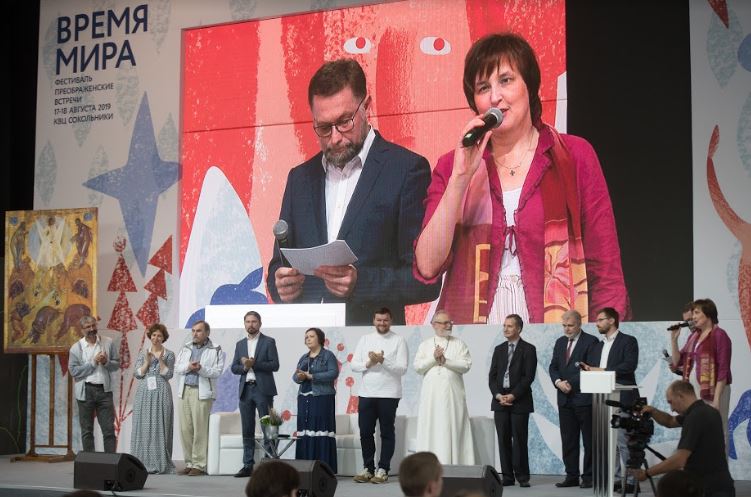
The spearhead group of leaders of the Forum for National Repentane and Rebirth speaks about what the restoration of the “best and finest” of Russian culture within society should look like:
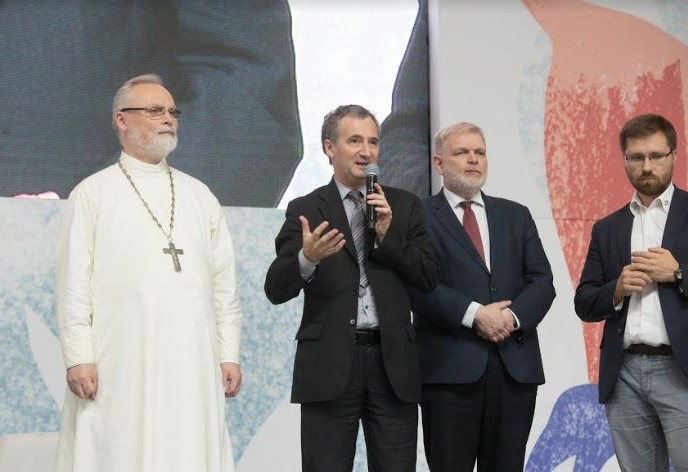
Oleg Scherbachyov, Leader of the Russian chapter of the Assembly of Nobility (Dvoryanskoje Sobranije): “Tradition is that which lives and organically exists within society, and we need to be extremely careful when we reconstruct things. Today it isn’t so much that we need to seed some sort of traditions – what we really need is to cleanse those we already have. Not all Russian traditions were cut off, even despite the Soviet rot. But we need to concentrate on getting rid of the Soviet dirt which has stuck to our Russian traditions over 70 odd years. We need to clean up our image of what a Russian person is, and then we might gain a foothold for growing the living traditions which belong to the Russian people. As a genealogist, I’d like to see more of us with knowledge of our own family backgrounds. We have to grow a culture of dialogue, and recall how opponents were able to associate with each other in 19th c. Russia. Our culture of welcoming guests and sitting at table is very important, and it’s one of the things that the USSR didn’t manage to entirely crush, even despite tight communal living quarters and fear of informers.”
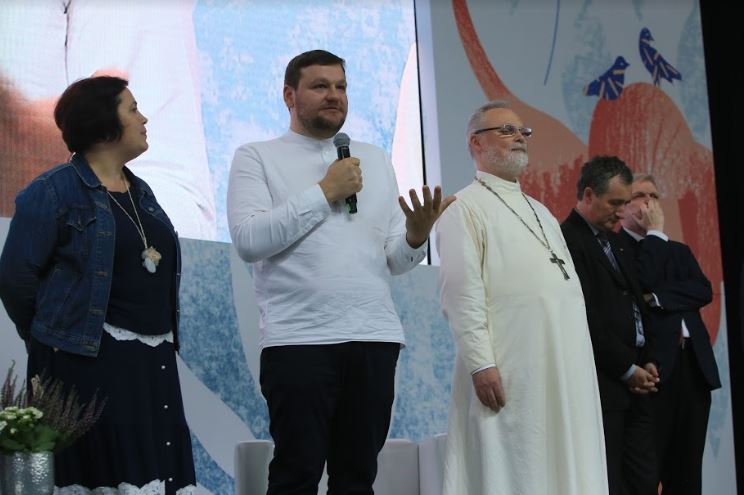
Dmitry Aleshkovsky, Chairman of the Board of the Help Needed (Nuzhna Pomosch) Charitable Fund: “As Professor Grigory Yudin has shown in his research, presented together with colleagues at this Forum, people have both “primary” and “secondary” memory. Their primary memory is official, permitted and censored. Their “secondary” memory is their recollections of their home, things important to them, things that are kept within the family. This secondary memory will always be sincere and personal. Those people for whom this secondary memory, in particular, is important should come together, as they are not afraid to call dark things “dark”, and light things “light”. When these people come together, the rebirth of our country will be possible.”
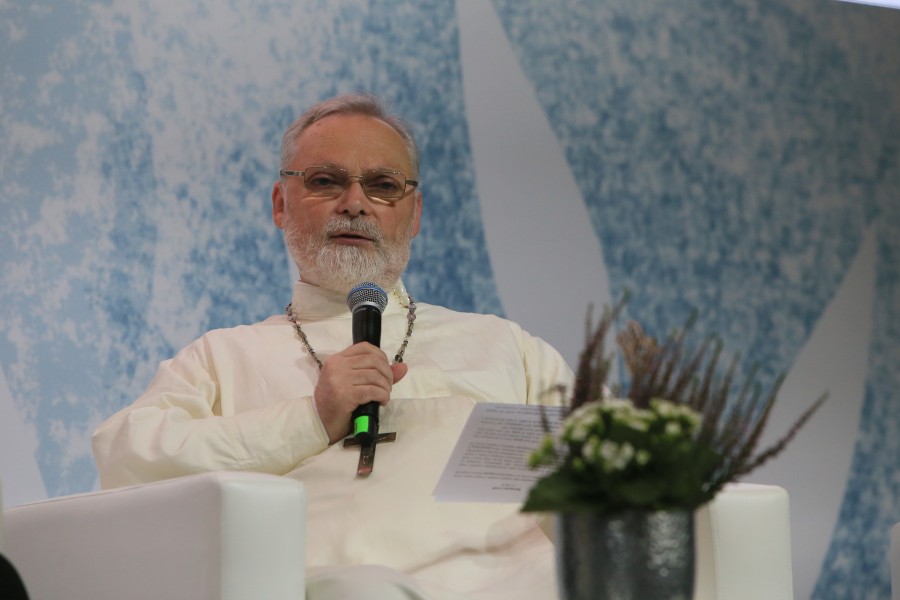
Fr. Georgy Kochetkov, Spiritual Father of the Transfiguration brotherhood: “The historical era in which we live might come to an end in various different ways: with a catastrophe and fall into a chasm…but other culminations are also possible. It is for this reason that we speak of rebirth and of hope and peace at this time, when we can see that there is not peace in the world. We have been seeing terrible pictures of clashes on the street – this is our contemporary world. We know that things can get a lot worse, and that that which we are already experiencing is beyond the pale. We need to ask where both sides that are clashing with each other are leading at the moment. It is difficult to call our authorities, with their doubtful heritage and questionable legitimacy, to observance of their own laws. The laws were not really adopted for that purpose, anyway. And look at the other side – the opposition – what do they call us to? Neither do they give us a peaceful solution and image of the future. For this reason, we can’t really directly support either the authorities or the opposition. We have to seek a way of peace, while both options on offer lead to war and to blood. We are looking for a third way, without which it is impossible to find a way out of our current situation. We need both internal rebirth and rebirth in terms of relationships between people. We are gathering together living power, that the Lord might bless us, so that peace can be established and flourish. Various types of associations, even though it is difficult for them to exist at present, show that this potential is present within society. Therefore, our Forum is a solution and a possible stepping-stone to a new era which must come, and it must come soon. We know this, and here at this Festival we are speaking about it and showing that it is possible.”
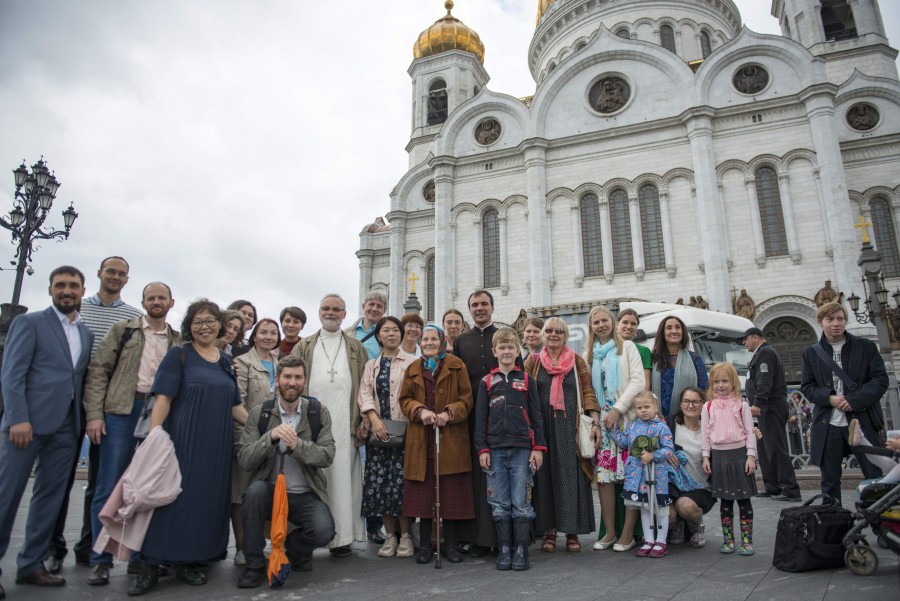
This year’s Transfiguration Meetings Festival, dedicated to the theme “A Time for Peace”, took place as part of the 30th Transfiguration Council. This year there were 34 Festival events, 11 of which were dedicated to church-related topics. Around four thousand people took part in the Festival, from more than 50 cities in Russia, as well as from countries abroad, including Belarus, Ukraine, Moldova, Germany, Italy, Spain, Latvia, Poland, the USA, France and Chili.